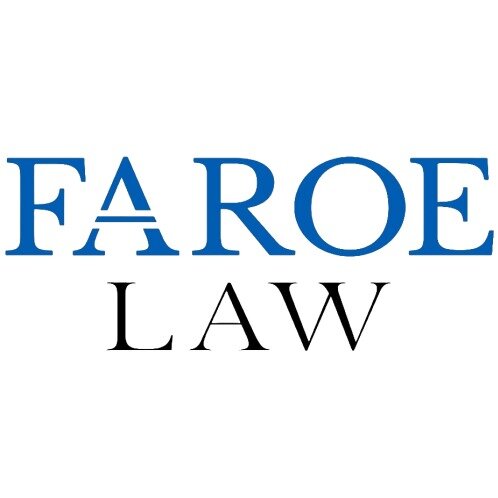Best Housing, Construction & Development Lawyers in Faroe Islands
Share your needs with us, get contacted by law firms.
Free. Takes 2 min.
Free Guide to Hiring a Real Estate Lawyer
Or refine your search by selecting a city:
List of the best lawyers in Faroe Islands
About Housing, Construction & Development Law in Faroe Islands
The legal landscape of housing, construction, and development in the Faroe Islands is shaped by the country's unique geography, culture, and economic needs. The Faroe Islands are an autonomous territory within the Kingdom of Denmark, which means that while some of its laws are influenced by Danish regulations, there are local laws tailored to the specific requirements of the islands. The housing market is relatively small, driven by demand from its limited population and growing interest in sustainable and environmentally friendly development practices. Construction projects, whether residential or commercial, must adhere to local standards that ensure safety, sustainability, and harmony with the Faroese environment.
Why You May Need a Lawyer
There are several situations where individuals and companies might seek legal advice regarding housing, construction, and development in the Faroe Islands:
- Purchasing property: Navigating the process of buying real estate, understanding contracts, and related regulations.
- Construction projects: Ensuring compliance with local building codes and obtaining necessary permits.
- Property disputes: Addressing disagreements over property lines, usage rights, or breach of contract.
- Development and planning: Gaining approvals for land use and understanding environmental impact requirements.
- Tenancy issues: Managing disputes between landlords and tenants regarding leases and rental terms.
Local Laws Overview
The Faroe Islands have specific laws governing housing, construction, and development that all participants must adhere to:
- Planning and Building Act: This law outlines requirements for land use planning and construction, ensuring that projects align with national and local objectives.
- Environmental Protection Regulations: Strict guidelines are in place to protect the unique environment of the Faroe Islands, which directly impact construction and development activities.
- Residential Tenancy Act: Governs landlord and tenant relationships, stipulating conditions for leases, responsibilities, and dispute resolution.
- Ownership Laws: Regulate property inheritance, sales, and co-ownership, which are crucial for real estate transactions.
- Building Safety Standards: Enforce measures to ensure the structural integrity and safety of newly constructed buildings.
Frequently Asked Questions
What are the initial steps for purchasing real estate in the Faroe Islands?
Begin by consulting local real estate agents who can provide listings and guidance. It's crucial to review the property's legal status and any existing encumbrances or conditions.
How do I obtain a building permit?
To get a building permit, submit detailed plans to the municipal building authority. Your application must comply with the Planning and Building Act and any local zoning regulations.
What should I know about tenancy agreements?
Tenancy agreements should detail rental terms, the duration of the lease, payment obligations, and maintenance responsibilities. Familiarize yourself with the Residential Tenancy Act for specific legal requirements.
Are there any sustainable building incentives?
There are frequently governmental programs promoting sustainability and energy efficiency for new developments. Check with local authorities for current incentives or grants.
How are property disputes resolved?
Property disputes are typically resolved through negotiation or mediation. Legal proceedings can be pursued if necessary, but initial consultation with a lawyer is advised for better outcomes.
Is foreign ownership of property allowed?
Yes, but non-residents may face restrictions or additional conditions. It's recommended to consult with legal experts to understand applicable regulations.
What environmental assessments are required for large projects?
For large projects, an Environmental Impact Assessment (EIA) may be required to ensure compliance with environmental protection laws. The EIA will evaluate the project's impact on local ecosystems and communities.
Can I extend my existing property?
Property extensions generally require approval from the municipal building authority. Your plans must comply with building standards and zoning regulations.
What is involved in the land development process?
This process involves planning approvals, environmental permits, infrastructure assessments, and community consultations. Legal advice can streamline the process and mitigate potential issues.
How are building code violations handled?
Violations may result in fines or order to halt construction. Rectifying them typically requires adjusting plans to meet code standards and obtaining re-inspection approval.
Additional Resources
For those seeking more information or requiring assistance, consider reaching out to the following:
- Government of the Faroe Islands: Provides resources and guidelines on building and development regulations.
- Faroese Building Code Agency: Offers specific information regarding building standards and safety regulations.
- Local Real Estate Agents: Can offer insights into current market conditions and property availability.
- Environmental Authorities: Provide guidance on environmental compliance for construction projects.
Next Steps
If you require legal assistance, here are some recommended steps:
- Contact a lawyer specializing in housing, construction, or real estate law in the Faroe Islands. They can offer advice tailored to your situation.
- Prepare all relevant documents and any correspondence related to your housing or construction issue before your consultation.
- Determine your objectives and preferred outcomes clearly to aid your legal counsel in providing the best guidance possible.
- Stay informed about local regulations and legal changes that may affect your situation in the future.
Lawzana helps you find the best lawyers and law firms in Faroe Islands through a curated and pre-screened list of qualified legal professionals. Our platform offers rankings and detailed profiles of attorneys and law firms, allowing you to compare based on practice areas, including Housing, Construction & Development, experience, and client feedback.
Each profile includes a description of the firm's areas of practice, client reviews, team members and partners, year of establishment, spoken languages, office locations, contact information, social media presence, and any published articles or resources. Most firms on our platform speak English and are experienced in both local and international legal matters.
Get a quote from top-rated law firms in Faroe Islands — quickly, securely, and without unnecessary hassle.
Disclaimer:
The information provided on this page is for general informational purposes only and does not constitute legal advice. While we strive to ensure the accuracy and relevance of the content, legal information may change over time, and interpretations of the law can vary. You should always consult with a qualified legal professional for advice specific to your situation.
We disclaim all liability for actions taken or not taken based on the content of this page. If you believe any information is incorrect or outdated, please contact us, and we will review and update it where appropriate.
Browse housing, construction & development law firms by city in Faroe Islands
Refine your search by selecting a city.










